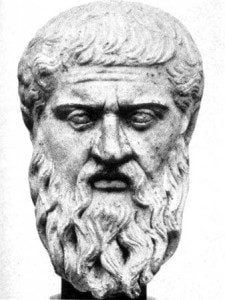 How can Christian churches be an effective presence in a culture and society that seem increasingly hostile to them? It’s a tough question. It’s also one that every single pastor, elder board, and congregation needs to be asking.
How can Christian churches be an effective presence in a culture and society that seem increasingly hostile to them? It’s a tough question. It’s also one that every single pastor, elder board, and congregation needs to be asking.
Here’s the reality: whether we’re aware of it, we are all “missional” now. If we would see fellow sinners saved and edified, we must all go and tell; we cannot sit back and wait for the masses to come to us. This is true whether we’re in rural, urban, suburban, Bible-belt, or post-Christian contexts.
Irreligion is no respecter of persons.
But how to do so? In a piece I just wrote for the American Spectator, I argue that an unlikely project–education–might also fit with our cultural and evangelistic mandate. The piece is entitled “Why Classical Schools Just Might Save America.” As you can see, I zero in on the classical school model. Here’s a swatch:
Such schools are the friend, in other words, of any who wish to think well and pursue the life of the mind. I submit, therefore, that classical schools offer great promise to religious citizens and all who want to train their children to think well and to live morally. If, for example, Protestant churches will start classical schools, they will likely find that there are many community members who likewise value real, old-style, ideas-driven education (just as Catholics have known for decades). (+50 if your Burkean “little platoons” sensors are beeping right now, by the way.)
Evangelicals are used to thinking about cultural renewal and evangelism in terms of revival. Hold a big rally; invite the community. That’s our best hope. While I’m a fan of most any project that promotes the gospel, provided it’s good-natured in intent, I wonder if we need to expand our program a bit. I think education might fit this expanded program nicely.
Why do I say this? Well, because children are always going to need schooling. Instead of running to our silos and shrinking back from the task of training young minds, evangelicals could actually lead a fresh wave of educational investment. If the culture is moving toward progressive dogma that results in public schools that ignore and even oppose traditional ideals and ideas, we could respond not by wringing our hands, but by starting better schools. We could use the classical school model championed by Dorothy Sayers and others (like Plato–above left–who believed in his own way in the importance of grammar, rhetoric, and logic), and thereby offer rigorous education that people of a wide range of beliefs could support.
In other words, we Christians could step up to the plate. We could provide outstanding, hard, challenging schooling in communities. We could work across denominational lines and work together to start classical schools that would stand for a kind of “mere evangelicalism.” If we actively encouraged community members (including those not of our denomination or even religion) to enroll their children, we might seize on the opportunity presented us by our secularist moment. (This, by the way, is what good Catholic schools have been doing for decades. They’ve been training their students along traditionally rigorous educational lines, and as a result, they’ve drawn outside students.)
Why can’t evangelicals do the same?
I don’t mean, though, that a wave of evangelically-founded classical schools would be hard-core evangelistic. I’m thinking of a gentle witness, rather than an in-your-face kind. The system would speak for itself, I think. It’s no bad thing, after all, to draw students from the wider community to your school, especially when you’re setting the educational terms, and thus making sure that the school fundamentally provides excellent instruction of the kind that fair-minded people of varying backgrounds can appreciate.
I would encourage pastors and churches to think about this kind of idea; some already have, to be sure, by founding Christian schools. I wonder, though, if the model of the classical school might hold promise in our day. There’s a place for both models, and I would love to see schools of both types flourish. I do wonder, though, if the classical school founded by a coalition of churches (or denominations or networks) might be especially effective in drawing those outside of the church.
Anyway, this is all grist for the mill. I could well be wrong in all this. Whatever the case, evangelism and cultural renewal will look different for American Christians than in past days. No matter what we do, I think we need to flexible, tensile, and missional. If we simply assume that folks will show up to our churches in droves, I think we’ll find ourselves in a woeful position in coming days. We have an opportunity–though it looks like a fearsome challenge–to seek the renewal of our culture.
Instead of sitting on our hands and swapping war stories about how bad things are getting, how about we double down, and seek the strengthening of our communal fabric, our national intelligence, our spiritual life?
Christians once did all this, by the way. Christians founded the great medieval universities of Europe; Christians founded the Ivy League universities and Little Ivy colleges in colonial America and following generations; Christians have historically invested hugely in education. Our revivalist, retreat-from-the-culture, play-it-safe mentality has left many of us thinking that we’re an anti-intellectual movement. In reality, Christians have often been at the educational forefront.
Can it be this way again? I hope so.











